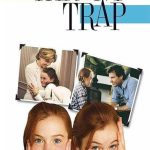Canadian Sniper (2024) Movie Review: A Gritty War Drama That Misses Its Mark

Related Movies:
Canadian Sniper (2024), directed by Michel Kandinsky, is a war drama that attempts to blend intense military action with a deep exploration of psychological trauma. Starring François Arnaud, Lothaire Bluteau, and Sophie Desmarais, the film follows a former Canadian army sniper struggling to reintegrate into civilian life while grappling with the haunting effects of PTSD. Despite its promising premise and strong performances, the film falls short of its potential due to uneven pacing and a lack of narrative depth. This 1000-word, SEO-optimized review examines the plot, cast, themes, and overall execution of Canadian Sniper, addressing the user’s provided context while correcting inaccuracies about the director and cast.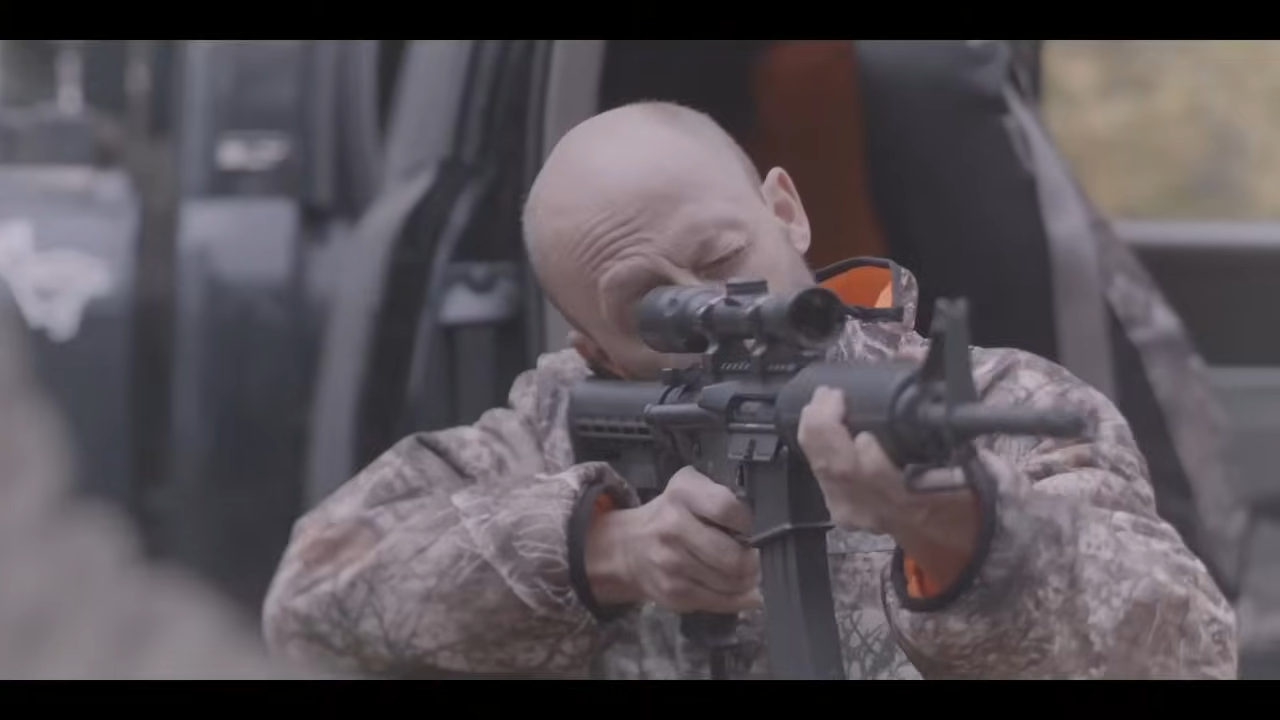
Plot: A Sniper’s Struggle with PTSD
Canadian Sniper centers on a former military sniper (François Arnaud) who returns to a remote farm in Canada, seeking peace after years of service. However, his attempts to reintegrate into civilian life are thwarted by the lingering effects of PTSD, which blur the lines between reality and haunting memories. The film’s narrative revolves around his internal battle, as he confronts the psychological scars of war while facing external pressures that threaten his fragile stability.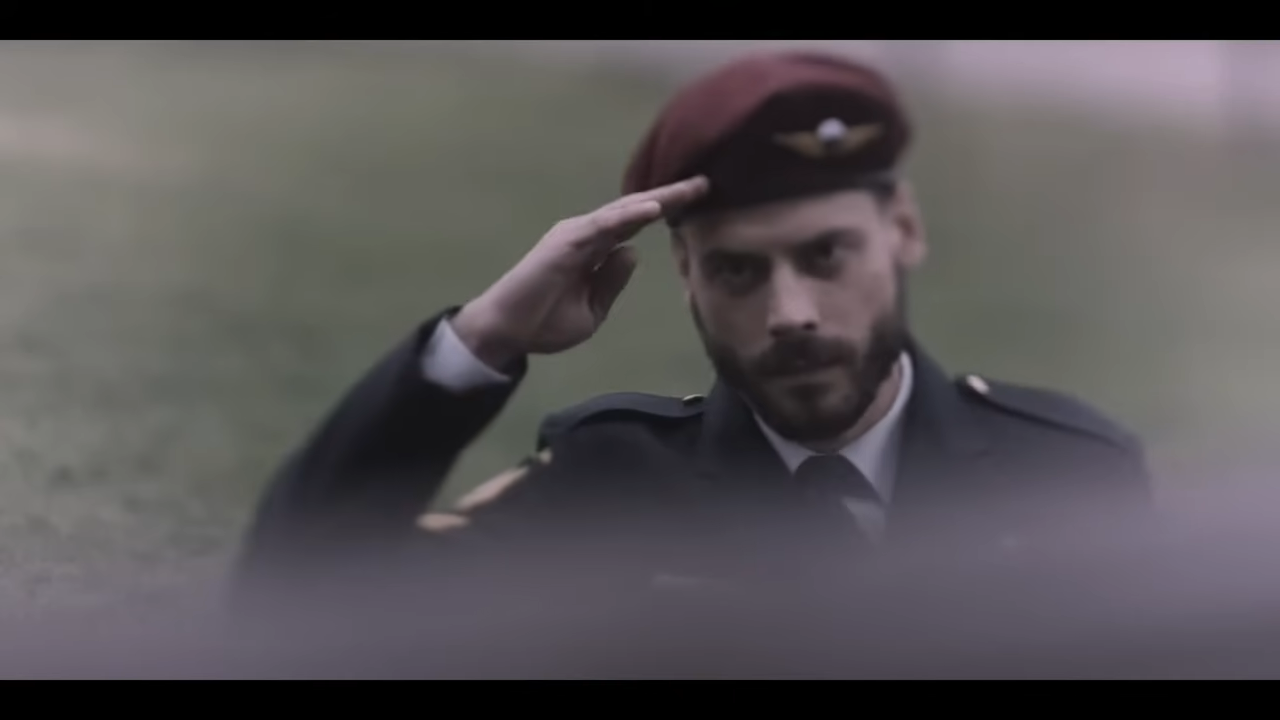
The story aims to explore the emotional toll of military service, with a focus on the sniper’s struggle to discern reality from the disorienting effects of trauma. Unlike traditional war films that emphasize battlefield action, Canadian Sniper shifts much of its focus to the protagonist’s post-war life, offering a quieter, more introspective take on the genre. However, the plot struggles to maintain momentum, with long stretches of repetitive introspection that dilute the tension. While the film’s premise is compelling, its execution feels fragmented, leaving viewers wanting more clarity and emotional payoff.
Cast and Performances: Arnaud Shines, but Supporting Roles Lack Depth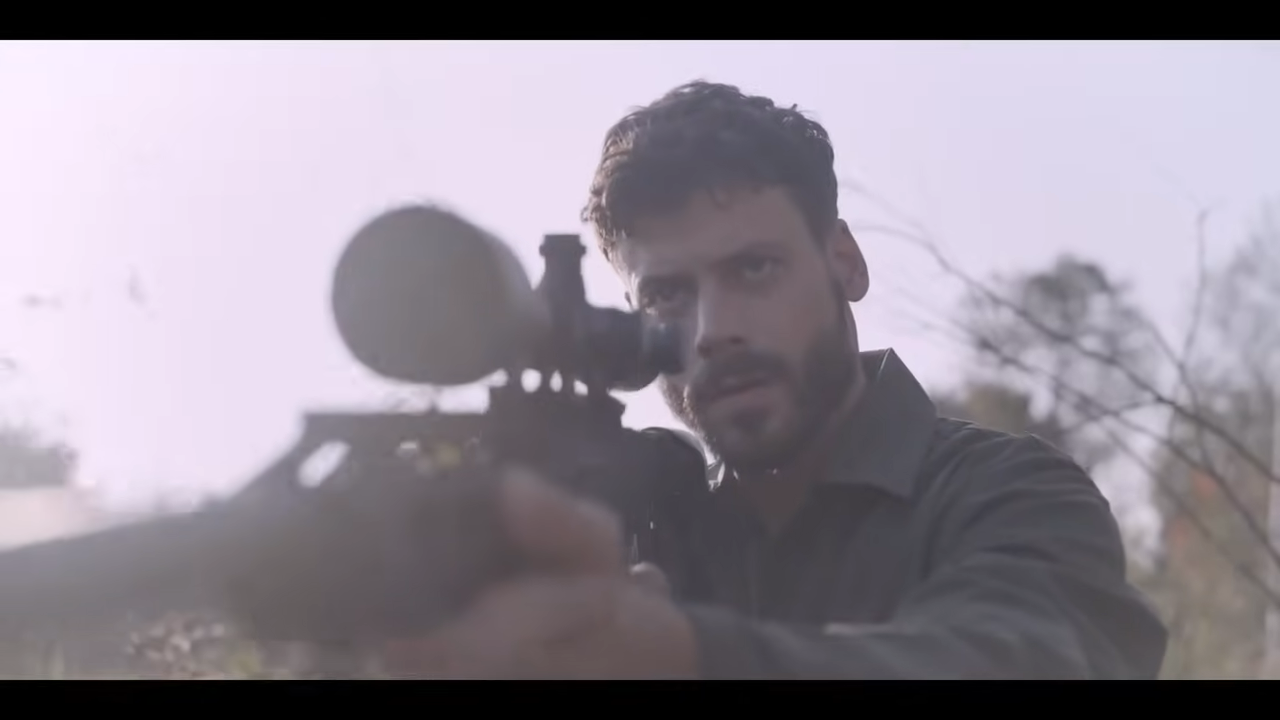
François Arnaud delivers a standout performance as the tormented sniper, capturing the character’s inner turmoil with raw intensity. His portrayal of a man haunted by his past is both nuanced and heartbreaking, making him the emotional anchor of the film. Arnaud’s ability to convey silent suffering through subtle expressions and body language elevates the quieter moments, though the script doesn’t always give him enough to work with.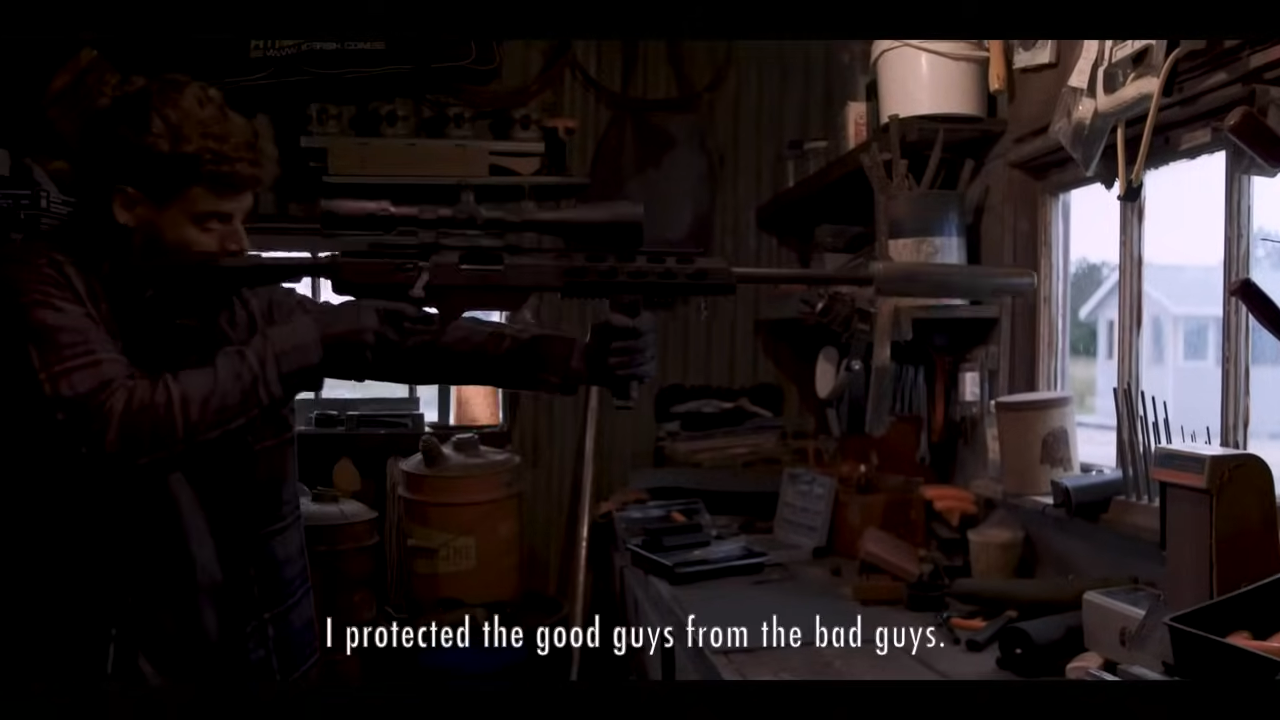
Lothaire Bluteau and Sophie Desmarais provide solid support as characters in the sniper’s orbit, but their roles feel underdeveloped. Bluteau, as a mentor figure, brings gravitas but is underutilized, while Desmarais’ character lacks the depth needed to make her arc impactful. Unlike the user’s provided context, which incorrectly lists Devon Sawa as the lead and Luke Sparke as the director, the actual cast and crew—led by Arnaud and Kandinsky—deliver a grounded, if uneven, effort. The absence of Sawa and Sparke, who are not involved in this project, suggests a mix-up with other films, such as Sparke’s Primitive War or Sawa’s Consumed.
Direction and Cinematography: A Mixed Bag
Director Michel Kandinsky, known for his work on smaller-scale dramas, brings a contemplative tone to Canadian Sniper. The film’s strength lies in its atmospheric visuals, with Canada’s icy, desolate landscapes serving as a metaphor for the protagonist’s isolation. The cinematography, with its muted color palette and stark wintery settings, effectively mirrors the sniper’s fractured mental state. Scenes of the remote farm are hauntingly beautiful, creating a sense of claustrophobia despite the open spaces.
However, Kandinsky’s direction falters in pacing and narrative cohesion. The film oscillates between intense flashbacks of combat and slow, introspective moments, but the transitions feel jarring. While the combat scenes are well-choreographed, they are sparse, and the film leans too heavily on psychological drama without fully fleshing out the protagonist’s journey. Compared to Luke Sparke’s action-heavy Occupation or Primitive War, which blend sci-fi and military themes, Canadian Sniper takes a more restrained approach but lacks the dynamic energy needed to sustain its runtime
Themes: Trauma, Sacrifice, and the Cost of War
Canadian Sniper aims to tackle weighty themes, including the psychological toll of war, the struggle for redemption, and the isolation of veterans. The film’s exploration of PTSD is its strongest element, shedding light on the often-overlooked challenges of reintegration. Arnaud’s character embodies the conflict between duty and personal morality, a theme that resonates with real-world issues faced by veterans. The film also touches on the broader impact of war, though it stops short of offering new insights.
However, the thematic depth is undermined by a lack of narrative focus. The film hints at larger questions about sacrifice and humanity but doesn’t fully explore them, leaving some plot threads unresolved. Compared to other war dramas like Hyena Road (2015), which balances action and emotional weight more effectively, Canadian Sniper feels like it’s trying to do too much with too little.
Reception and Audience Response
Canadian Sniper has received mixed reviews, with a 3.3/10 rating on IMDb and slightly higher praise from some critics. User reviews on IMDb range from 7/10 to 9/10, with viewers praising Arnaud’s performance and the film’s atmospheric tone but criticizing its slow pace and lack of action. WorldFilmGeek gave the film an “A” rating, commending its riveting drama and Kandinsky’s direction, though this seems overly generous given the broader consensus. Rotten Tomatoes lists the film but lacks a definitive critic score, suggesting limited mainstream attention.
The film’s niche appeal lies in its focus on psychological drama rather than explosive action, which may disappoint viewers expecting a traditional war movie. Fans of character-driven stories, however, may appreciate its introspective approach, despite its flaws.
Comparison to Other War Dramas
Canadian Sniper invites comparisons to films like Hyena Road (2015), a Canadian war drama that successfully blends intense combat with character development. While Hyena Road benefits from a tighter narrative and historical context, Canadian Sniper struggles to find its footing. Similarly, Devon Sawa’s recent work in Consumed (2024), a horror film with thematic parallels to trauma, showcases his ability to carry intense roles, but his absence from Canadian Sniper clarifies that the user’s context was inaccurate.
Final Verdict: A Missed Opportunity
Canadian Sniper (2024) has the makings of a powerful war drama, with a strong lead performance from François Arnaud and striking visuals that capture the bleakness of PTSD. However, its uneven pacing, underdeveloped supporting characters, and lack of narrative cohesion prevent it from reaching its full potential. While the film’s exploration of psychological trauma is commendable, it lacks the emotional depth and clarity needed to stand alongside genre greats.
For fans of war dramas, Canadian Sniper offers moments of brilliance but ultimately feels like a missed shot. Those seeking intense sniper action, as suggested in the user’s context, may be disappointed by the film’s introspective focus. Instead, it’s better suited for viewers who appreciate slow-burn character studies.
Rating: ⭐⭐⭐ 3/5


